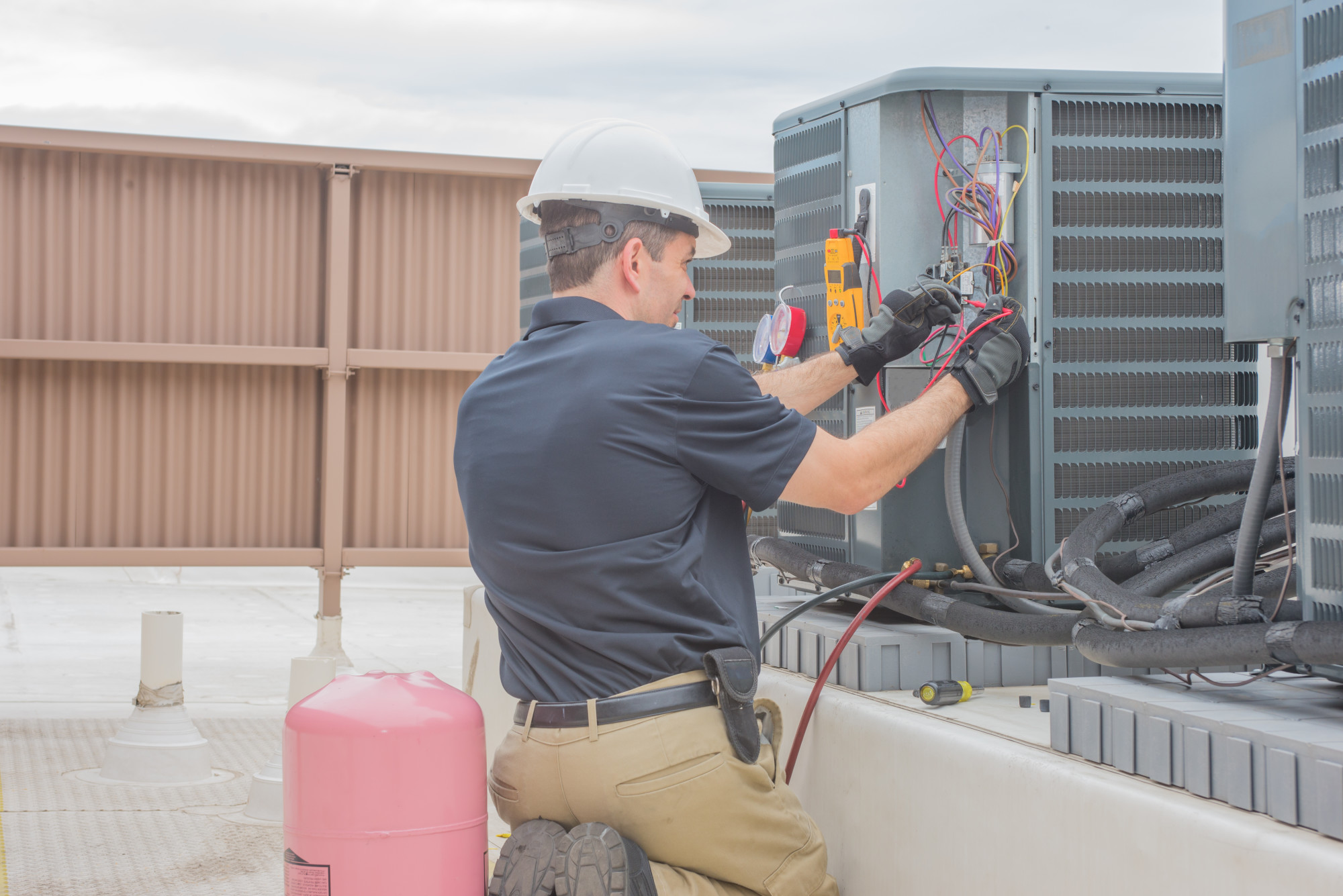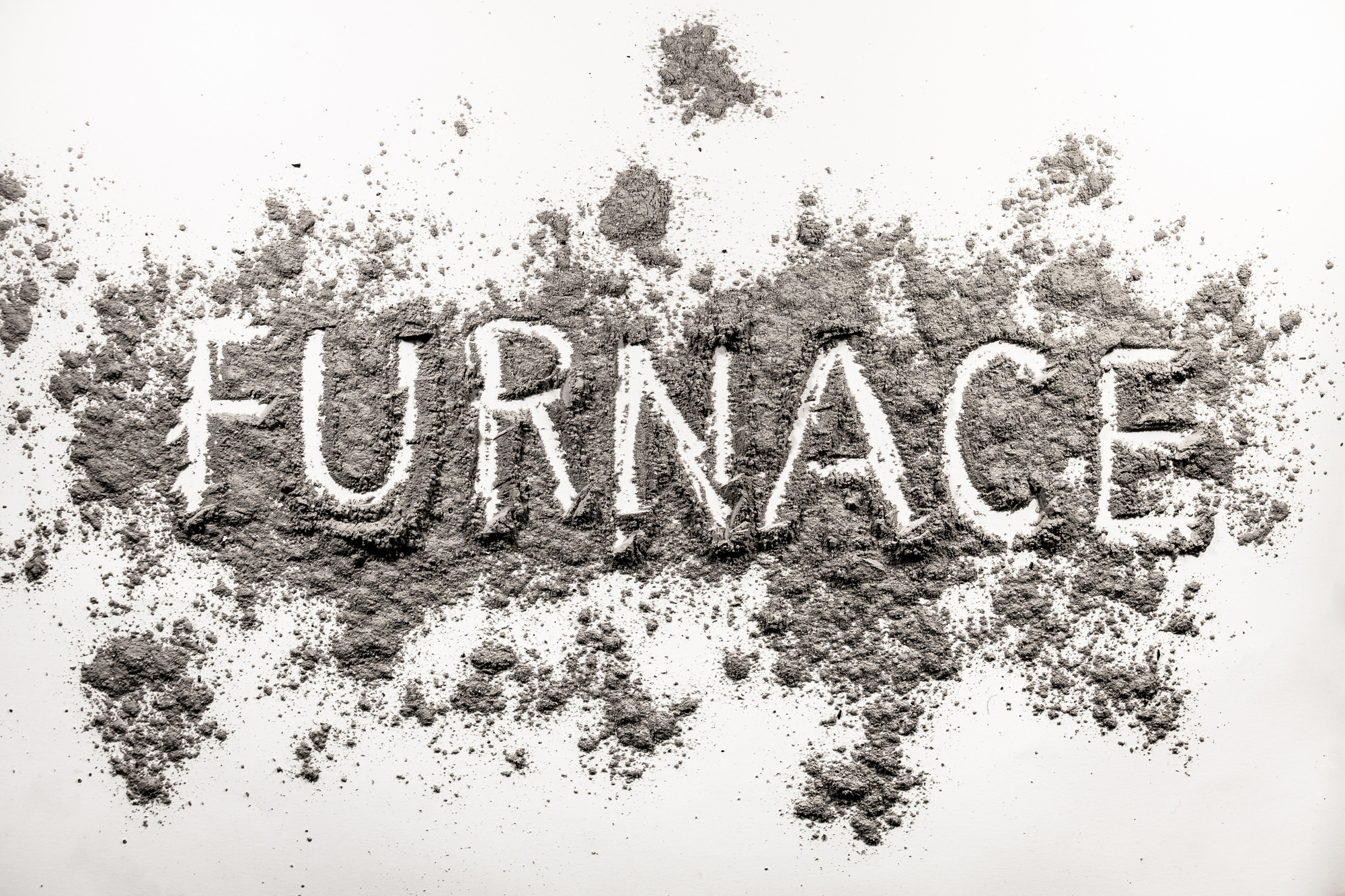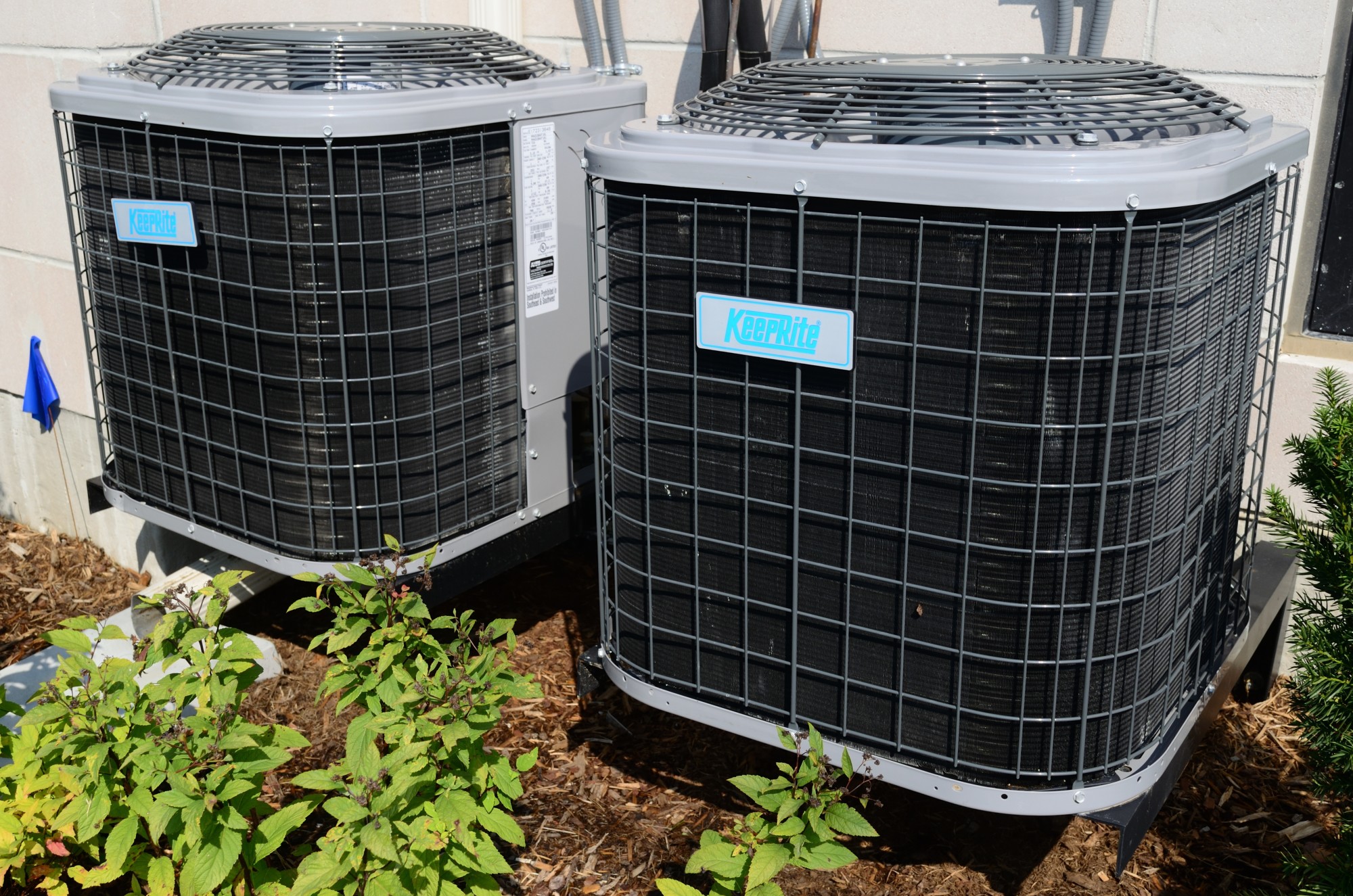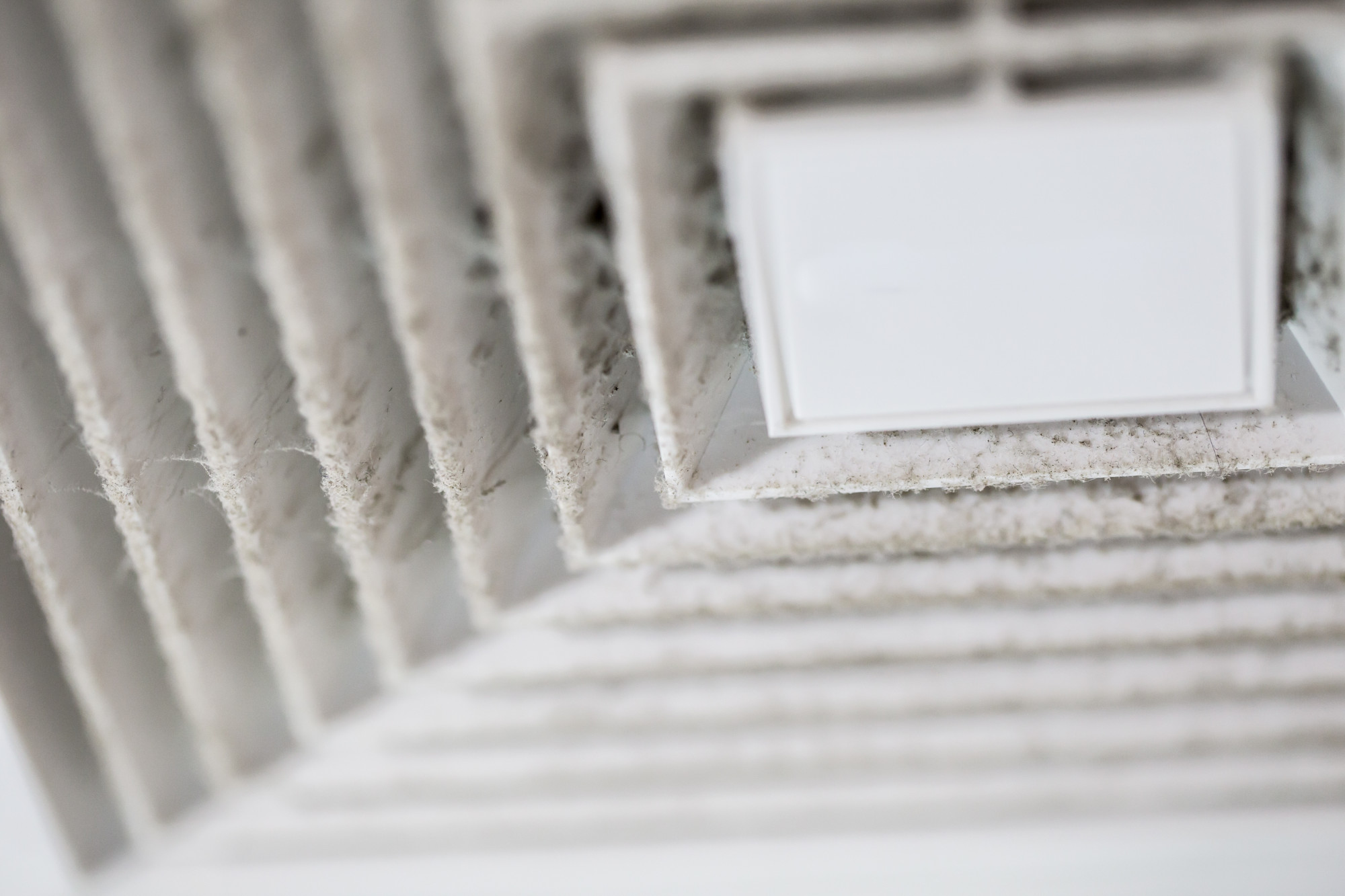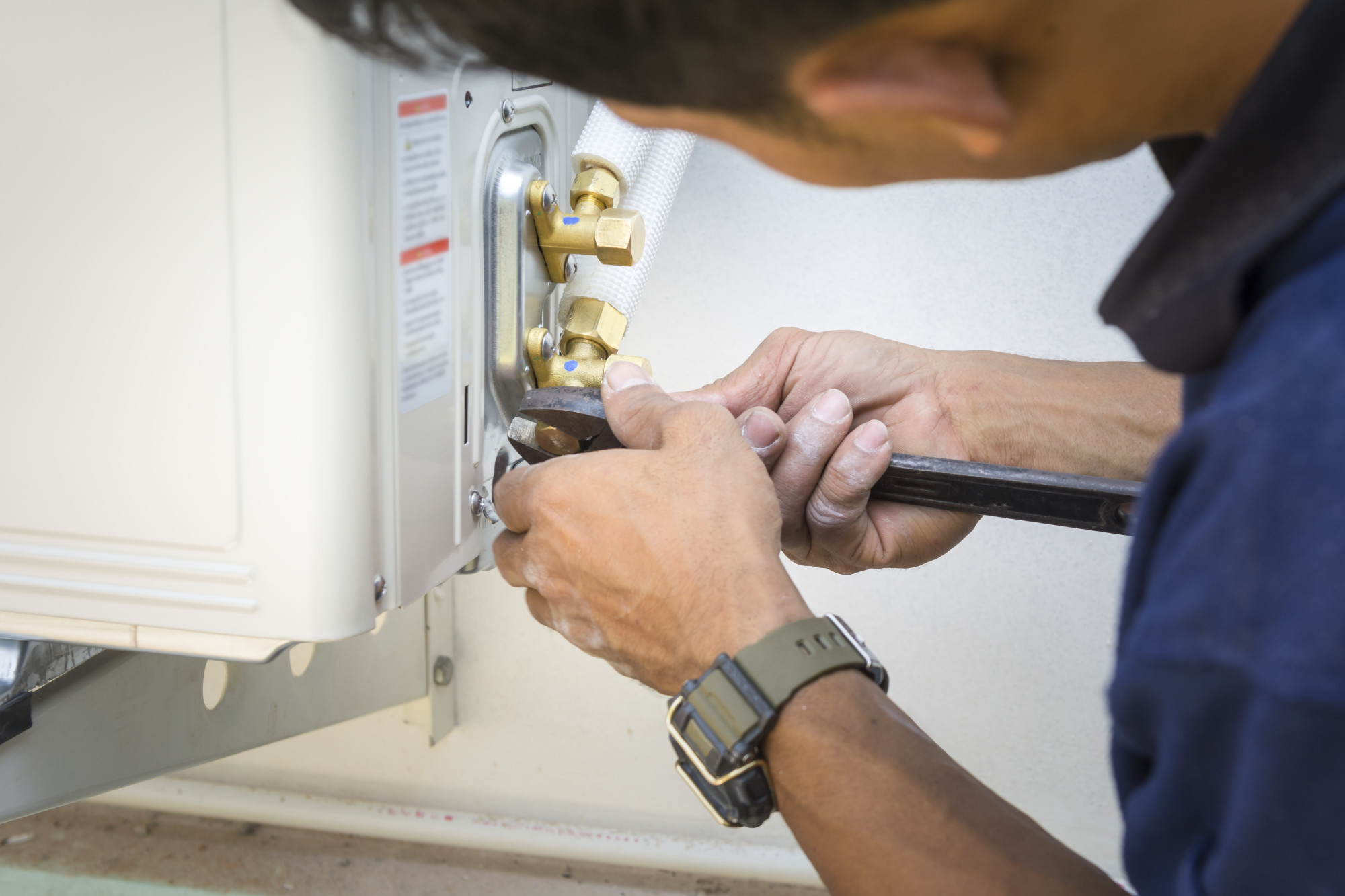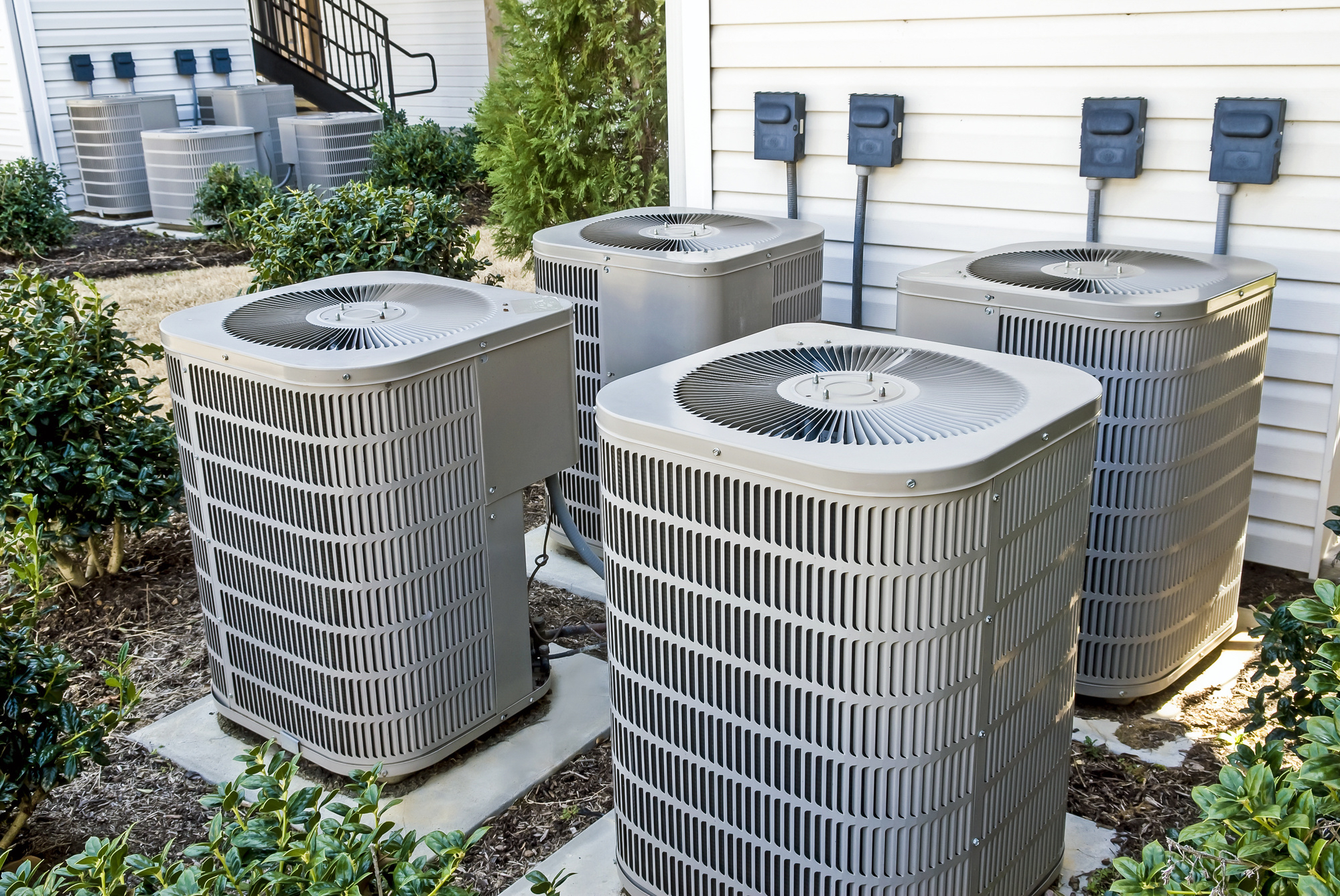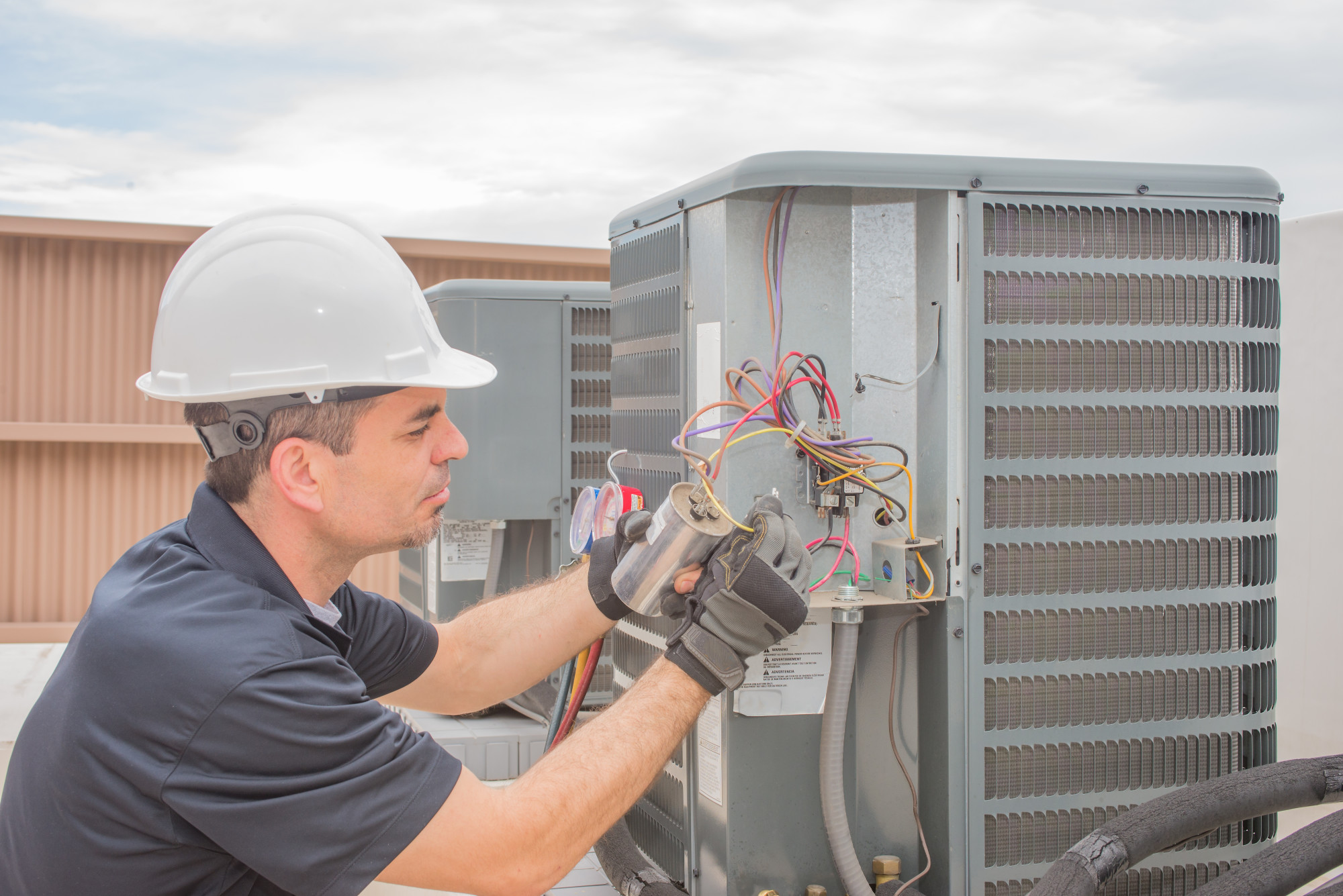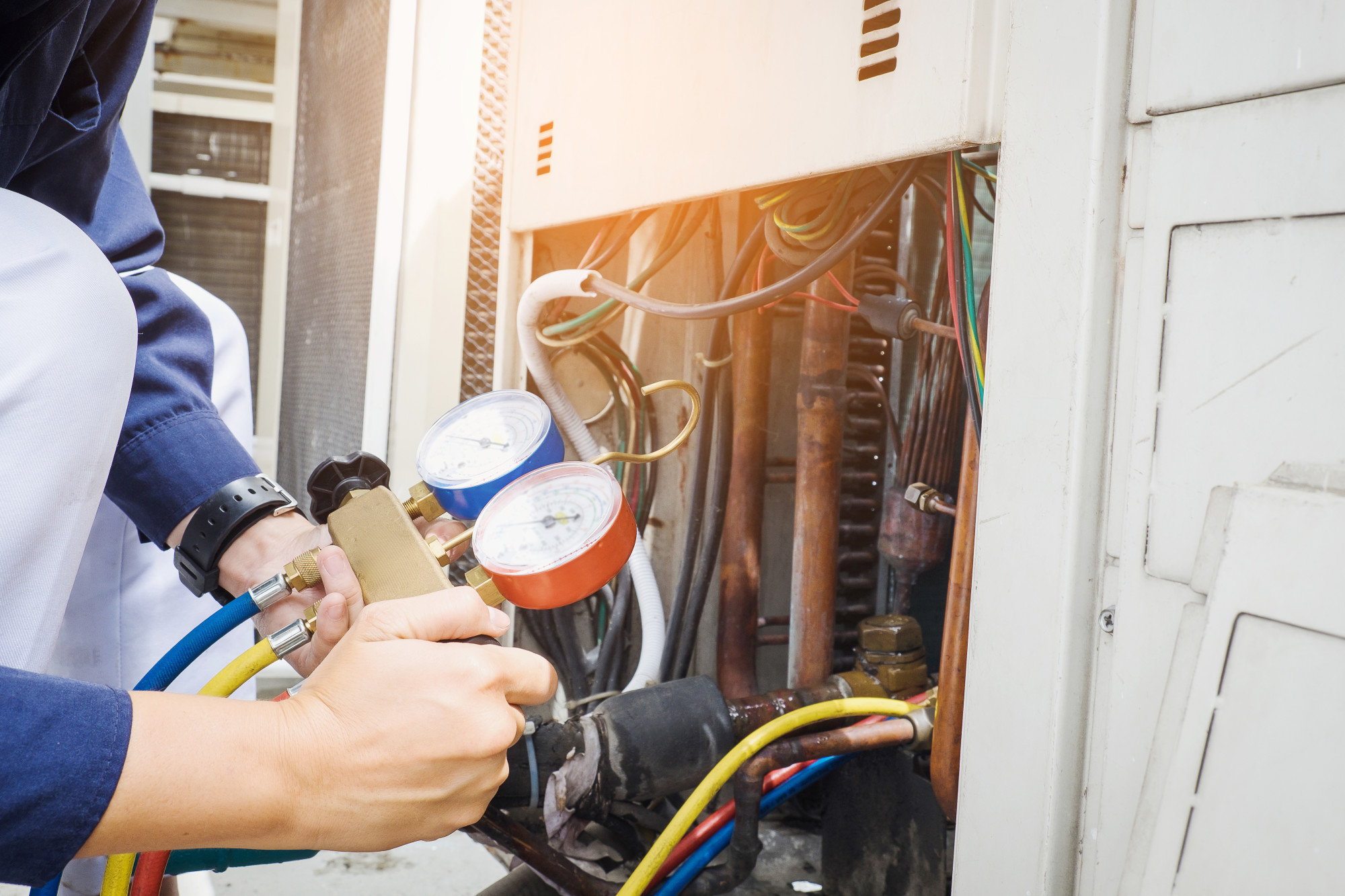Should You Run Your Air Conditioner in the Winter?
AC units are crucial to keeping our homes cool during the summer. However, if your home gets stuffy or hot during the winter, you may still be tempted to run the AC and cool yourself off.
What exactly happens if you run your AC during the winter?
While it is possible to run your AC when the weather is cold, you should use it with caution. Here are some air conditioner tips to keep your AC unit from getting damaged during the winter months.
Can My AC Unit Get Damaged if I Run it During Winter?
In short, yes, your AC unit can suffer from damage if you run it during the winter. While AC units can work fine in warm weather, cold temperatures can do a number in the inner and outer workings of your air conditioner.
While you can still run your air conditioner during the winter, there are some signs of damage that you should watch out for. For efficient use of air conditioners, you should pay attention to these signs before your AC unit takes on serious damage.
Overheating Compressor
During the summer, the compressor within your AC unit runs as it should. When the weather gets cold, your compressor will have to work twice as hard, which can lead to overheating.
Using your air conditioner too often during the winter can cause irreversible damage to the compressor. If you do choose to run your AC in the winter, make sure to give it regular breaks to avoid overheating the compressor.
Loss of Lubrication
Lubricants are responsible for keeping the compressor running smoothly. During the winter, these lubricants can freeze up and become too thick to function well. This makes your AC unit's compressor more likely to break down.
These lubricants freeze up extremely quickly in cold weather. Once they become too thick, they are no longer effective at cooling down your compressor.
Cooling Coils Becoming Frozen
Your air conditioner will naturally drip water from within the machine. This is the condensation that naturally builds up in the outside unit. This water can quickly freeze during cooler months, leading to severe damage to your outside AC unit.
This water can gather around the cooling coils inside of the unit, which can easily become frozen. This can easily damage the coils over a short period of time. If the coils become frozen, the machine can overheat, as there is nothing inside of the machine working to cool it off.
If you happen to notice ice building up on your outdoor unit, you should shut off the AC right away. This will give the machine some time to thaw out. If the ice doesn't thaw, then you should avoid using the machine for a while to avoid further damage.
Temperature Sensor
Your AC unit has a built-in temperature sensor that tells it when it should stop running. In order to run your AC unit during the winter, this sensor has to be overridden. By overriding that sensor and running your AC unit during the winter, you can cause it to become ineffective in the future.
The Dangers of a Damaged AC Unit
Naturally, any damage that is done to either the inner mechanisms or outside of the AC unit can lead to costly repairs. Pieces of your AC unit may need to be replaced, or in a worst-case scenario, you may have to replace the entire unit.
What to Do Instead of Running the AC
It's fine to have your AC unit cooling your home on occasion during the winter. However, there are better ways that you can cool down your home without risking damage to your air conditioner.
If you want some air conditioning tips to save energy and money, here are a few things you can do to cool down your home during the winter.
The easiest way to cool down certain rooms in your home is to crack open a window. This will allow the cool air outside to bring the room down to a normal temperature.
If the stuffy room doesn't happen to have a window, fans can work to bring down a room's temperature. Leave the room's door open so that the warm air can escape the room while you run the fan to help get rid of the stuffy atmosphere.
For overly humid rooms, dehumidifiers can help. Simply place the unit in whatever room has gotten too humid and set it to run for a while.
When to Seek Out a Professional
Have you run your AC unit this winter and are worried it may be damaged? There are a few key signs that you should get a professional to inspect your unit.
Firstly, has a significant amount of ice built up around the outside of the machine? Look out for long icicles hanging from the machine, as these are a clear sign that your machine may start to overheat soon.
Has your AC unit been making strange noises or producing smoke? This may point to an overheating problem with the machine. In order to avoid significant damage, you should have it inspected right away.
Finally, has your AC unit stopped working altogether? If so, call a professional immediately to address the issue at hand.
Air Conditioner Tips to Protect Your AC Unit
With these air conditioning tips for homeowners, you can feel safer while using your AC during the winter. Keep these air conditioner tips in mind the next time you play on cooling down your home.
Is your air conditioner not running as it should be? Do you live in or near Houston, Texas?
We're here to help. Contact us with any questions or concerns you have about your AC unit and continue reading our blog for more helpful tips.
Before It's Too Late! The Top Warning Signs You Need Heating Replacement
Do you actually know how old your heating system is? If you are finding your property takes longer to warm, or have noticed an increase in utility costs then it is a sign that you may need a replacement. If you fail to act, a faulty heating system can cost you financially and even worse, can cost your health.
If you are unsure if your home needs a heating replacement, or you suspect it may, then have no fear. Read on to find our warning signs that indicate you need a heating replacement immediately.
1. Your Bill Has Increased
The cost of utilities does rise over time, and it is natural to see your bills go up a little year on year. However, sudden and dramatic increases could be down to an inefficient system or parts. If you already know your air ducts are properly sealed and you have been conducting regular maintenance, then you definitely should not have sudden increases.
If your heating bill increases over a period of a few years, but that increase is not inline with rising energy prices, your furnace is probably to blame. Furnaces become less efficient over time. This means they need more power, using up more energy which translates to cost.
If the furnace is also leaking out heat in areas that are not required, then you will also be incurring extra costs due to increased fuel use. The internal parts may also wear out, causing gas and electricity bills to go up. In this instance, it is best to seek a quote from a professional.
2. The Furnace Is Old
Unless you have lived in a property for a long time, you probably do not know the age of your furnace. Like anything in your home, furnaces do not last forever and will need replacing after a while. The average life expectancy of a furnace is 18 years.
If you know or suspect your furnace is over 15 years old, then it probably needs replacing. You can check this by looking at the label under the unit (if it has one).
Replacements should be conducted not just because your furnace will fail or break, but because modern furnaces are much more energy-efficient. In fact, your furnace may keep running for a while longer, but the cost to you in utilities will become more than if you had replaced the unit. Try to locate a new furnace that has energy star ratings for maximum efficiency.
3. Odd Noises
One way you can tell that your furnace is reaching the end of its life is by the strange noises it will begin to make. Squealing, rattling, banging, and popping may all start to emanate from your unit. Another sign is that the blower may turn on and off frequently, or starts to blow cold air.
The noise you will hear will denote the problem, though they are too vast to list. The most common problems tend to be faulty motors or loose parts. Avoid them by scheduling regular maintenance or calling a repair specialist immediately.
4. Heating Replacement and Illness
A more serious sign of the need for heating replacement is an illness in the occupants of the property. You do not want your family or colleagues to get sick, and problems caused by aged heating can often be quite serious.
Carbon monoxide poisoning is a very serious problem that can result in death. It is characterized by flu and cold-like symptoms in the early stages.
Usually, it is caused by a leak in the gas heater or poor ventilation from the exhaust section. If the exhaust is not venting out of the living space properly or is not controlled, then the gas can build up. Gas can also leak from the heater exchange or other parts of the system.
You can keep yourself safe with a carbon monoxide detector. It is the only way to notice the gas before it is too late, as it is color and odorless.
5. Pilot Light Flame
A gas heater should always have a bright blue flame. A flame that is yellow or flickering is not a good sign and can be an indication that carbon monoxide is being created by your furnace and not venting away safely. The dirty and blocked system needs to be replaced or cleaned to prevent this.
If you find that the flame is weak or flickering without color changes, then gas is not being completely burned. Consult a specialist as it is a health risk.
6. Dry Atmosphere
Stuffiness and staleness in the house is an indicator that you may need your heating replacing. Aged furnaces do not have the ability to add moisture and clean the air in your property. You can see this if you have increased dust accumulation, static electricity build-ups, and furniture that dries and cracks.
Signs can also physically appear in occupants of the property. Dry noses, throats, or skin can be irritable signs. If anyone in the home suffers from any allergies they may also find that they increase in dry conditions.
7. The Thermostat Is Not Responding
If you find you are adjusting the thermostat often, or rooms are far too hot or cold, it could be a furnace problem. The furnace is no longer able to distribute the heat throughout your house. It could also be that the thermostat itself needs replacing or is due to have an upgrade.
Do Not Delay a Replacement
While your heating may still work under these circumstances, you can not delay a heating replacement or service. Financial costs aside, it could cost you and others your health.
P&M can provide services and maintenance for all your heating and AC needs. We have experienced, professional staff on hand willing to provide dedicated customer service. Call us today for a quote if you have any worries or queries about your heating replacement.
7 Signs Your HVAC System Needs Air Duct Cleaning in Houston TX
In the U.S., we spend about 90% of our lives indoors. That means the average person spends about 21.6 hours inside every day.
If you don't have easy access to the outdoors, you could spend all your time indoors.
The trouble is, indoor air can carry up to 5 times as much pollution as the fresh air from outside. Indoor pollutants can include things like pet dander, cigarette smoke, mold, lead, and asbestos.
Luckily, cleaning your air ducts can make a big difference. Read on to learn the signs you need air duct cleaning in Houston, TX so you can breathe a sigh of relief.
1. You See Dust Coming From Your Air Vents
If you turn on your heat or air conditioning and you see a puff of dust or smoke come out of the vent, that's a sure sign your air ducts are dirty. When things are working properly, you shouldn't see or smell anything coming from the vent.
If you'd like to check your system, switch your heat or AC off. Wait a few minutes and turn it back on. Do you see any dust particles or smell something smokey coming from your vents?
If you see dust, you should schedule a professional cleaning soon. If you see or smell smoke, try not to use your system before a technician can come look at it. You could have a clogged air duct or a mechanical issue with your HVAC unit.
2. Your Energy Bills Are Going Up
It's normal for your energy costs to fluctuate from month to month. But, if there haven't been any major weather changes and your bill has gotten much more expensive, it could be an issue with your HVAC system.
First, check your utility bill for any new fees or service charges. Then, ask yourself if you've used a lot more energy in the past month. For example, a new hot tub could boost your monthly energy bill by as much as $50.
Once you've ruled those things out, you could have an issue with your air ducts. If your ducts are clogged with dust, your system will have to work harder to heat or cool your home. If you've noticed a change in airflow in a particular room, you could even have a blockage in your ductwork.
3. Your House Is Always Dusty
Dust is inevitable in an indoor environment. Every few weeks or once a month, you might need to pull out your microfiber cloth or feather duster to keep your home looking fresh.
But, if it seems like you're constantly battling dust bunnies when your cleaning schedule hasn't changed, your duct work could be the culprit.
Hot and cold air travels from your furnace or air conditioner, through the ductwork, and out of the vents in your home. The more dust that builds up inside the ducts, the more dust that will come out of your vents. It will settle on hard surfaces and make your house dustier.
4. You've Just Renovated Your House
Renovation projects are exciting, but they're also bad for indoor air quality. Whether you're renovating the kitchen, taking down a wall, or getting a new tile floor, expect some dust.
The trouble really starts when that dust from construction makes its way into your air ducts. You'll keep breathing in those cement or paint particles until you get your ducts cleaned.
Luckily, you and your construction crew can prevent some of this dust in the first place. Depending on the renovation, you can put covers over your vents. You can also rent an air scrubber and ask the crew to install plastic sheeting around the renovation area of your home.
5. Your Vent Grilles Look Dusty
Your vent grilles control the direction of airflow in your home. They also cover up the large vent holes in your floor or ceiling. You can also use your vent grilles to spot problems with your air ducts.
If you notice a lot of dust on your vent grilles, there's a good chance it's coming from inside the duct. Walk around your house to check your other vents. Do they look just as dusty?
If you're noticing dusty vent grilles throughout your home, you could have a widespread issue with your ducts. Contact an HVAC service company for maintenance as soon as you can.
6. Your Family Is Having More Health Problems
Indoor air quality issues can lead to allergy systems, asthma flare ups, itchy skin, and respiratory infections. If it seems like you or your family members have new or worsening allergy symptoms this year, think about your air ducts.
Between allergies, cold, and flu season, you might notice more coughing and runny noses than usual. But, if you're noticing ongoing symptoms, you might want to look at your air ducts.
If dirty air ducts were to blame, your symptoms might improve in just a few weeks.
7. You Notice a Musty Smell Throughout Your Home
If you're noticing a widespread musty odor throughout your home, it could be coming from your air ducts. If your AC system can't keep humidity in check, it can lead to mold growth.
Mold and mildew growth can also cause respiratory issues, just like dust can. Plus, if you don't address it soon, it can keep growing and spread throughout your ductwork.
To check for mold yourself, remove the grille cover and get a flashlight. If you see signs of mold, reach out to a technician who specializes in indoor air quality and mold removal.
Hire a Pro to Handle Your Air Duct Cleaning in Houston, TX
Dirty air ducts can make your house harder to clean, raise your energy bills, and even cause health problems. Since we spend so much time indoors, it's critical to think about the air we're breathing. If you've noticed any of the above warning signs, it might be time for air duct cleaning.
But, air duct cleaning is more than dusting the inside of your air vents. It requires special air duct cleaning tools and expert knowledge of HVAC systems. That's why it's best to leave it to the pros.
If you're looking for air duct cleaning in Houston, TX we can help. At P&M Air Conditioning and Heating, we offer indoor air quality solutions to make your home safer and cleaner. Contact us today to schedule a repair or get a quote.
AC Tips: Diagnosing AC Problems and Finding Solutions
The home’s air conditioning system tends to fail when you need it the most. Yes, that time when there’s too much heat, and you need something to blow some cool air into your skin. Well, this is also the time when you’ll easily notice that your AC system has a problem.
So, what do you do when your AC system doesn’t work? Don’t call a technician yet because sometimes diagnosing AC problems require a DIY project. Of Course, this applies to those problems with easy fixes.
So what are some AC problems, and how do you solve them? Here are a few AC tips to help you repair common problems without spending a fortune.
1. Blow Circuit Breaker or Fuse
Sometimes your AC problems can be as simple as blown circuit breakers or fuse that only need very easy fixes. But you must know for sure if this is the problem with your AC before you start any diagnosis. If you have a tripped breaker, your AC will refuse to turn on.
You’ll need to head to your home’s main electrical panel and check if your circuit breakers aren’t ‘ON.’ If it’s labeled, check the label of ‘AC’ or ‘Air Conditioner.’ If the label shows that it’s tripped, push it firmly into the ON position and try running it again.
After doing this, your AC might go back to its normal working state, or the breaker can trip again once the AC starts running. If it trips again, then this means the problem is not so simple, and you need a professional to work on the system.
2. Wrong Thermostat Setting
When the thermostat is not set to cool, your AC will not blow the cool air that you desire so much. You need to check if the thermostat is in the correct setting, which is, set to cool for summer temperature.
You should also ensure that the setting is at least three degrees below the ambient room temperature. If that’s not the case, you need to check if it’s set to ‘off’ or ‘heat.’ Set back your thermostat to AC mode and lower the setting of the temperature.
3. Blocked Condenser
Sometimes your AC will be running as required, but you can’t get the cooling effect. The main reason for this problem might be because something is blocking your air. This could be as a result of a blocked condenser.
Your condenser may be blocked by dirt, debris, grass, or tall weeds. Check to see if it’s dirty or any dirt is blocking it. If that’s the case, start removing the blockage, which you can do using a hose or a gentle setting.
If the condenser is covered with a thick layer of dirt, which will not be easy for you to remove, call a professional to do some deep cleaning.
4. Diagnosing AC Problems in the Capacitor
The run capacitor is the big compressor units outside the house, sometimes placed on the roof. This is the boost that starts the condenser and fun, and if it’s spoiled, your home’s cooling will be doomed. You need to make sure the problem is your capacitor and not the contactor to start this diagnosis.
One indication of a capacitor problem is a click followed by a buzz or hum. This means your fan motor is attempting to start, but the boost from the capacitor is not enough to do it. There’s no doubt that your capacitor would have failed.
An easier solution is to get the compressor fan to spin by pushing with a thin stick. This will only work for a circle before the capacitor fails again once you switch on the AC. One permanent solution to this is to replace the capacitor.
5. Problem in the Refrigeration System
When your AC is running as it should, but you notice that the air being blown is not cold, you might have a problem with your refrigeration system. The problem could be with low refrigerant levels. The low levels can be a result of leaks causing the problem over time.
You need to check on the lines and recharge your system. Call a professional to do the AC repair because problems with the refrigerant system could be quite complicated for an amateur.
6. Disconnected Panel
Sometimes your air conditioner problems may be as a result of disconnected wires. If you suspect that this may be the case, you need to inspect the inside of the access panel. Make sure the power is off before starting the inspection. Carefully remove the access-panel retaining screws and then remove the panel.
Check if the parts inside have rodent nests or chewed wires. If you find chewed or broken wires, discharge the capacitor and start repairing the wires and cleaning the nests. If you’re not sure about what you’re doing, it’s best to call a professional.
7. Ice Blockage
Sometimes ice in the air handler can stop your AC system from working as intended. Reduced airflow or low refrigerant levels can cause the air conditioning unit to freeze. If it’s the refrigerant level, then call a pro to refill.
If the problem is reduced airflow to the system, check and see what’s blocking the air. Clean your filter and coils and see if the airflow improves. Also, make sure you run the unit with just the fun and melt off the ice.
Restoring Your AC System Is Simple
Diagnosing AC problems is very simple as long as you can figure out the cause of the problem. Some solutions are as simple as doing some cleanups, while some require a professional touch.
Sometimes your unit might be too old that you should consider doing a replacement rather than constant repairs. Make sure you only check the most reliable models in the market when you finally consider upgrading your unit. This could save you from any future problems, such as consistent fixes.
Whether you need to repair, upgrade, or seek professional services to help with your AC problems, we will be here to help you out. Contact us through phone, text message, or email for all your AC questions and find reliable answers.
Do You Need a Permit to Replace Your HVAC in Houston TX?
It's hard to underestimate the importance of good HVAC in Houston, TX. When it gets hot, you need something working to keep your home at a manageable temperature.
That said, HVAC systems work only has hard as the weather is hot. So, living in a hot climate means that your system is working hard most of the year, and you're going to see some wear and tear over the years.
It might be tempting to try and replace your HVAC system yourself and save some money. We're going to talk a little bit about how to move forward with getting a new HVAC installed in this article.
Replacing Your HVAC in Houston, TX
We hate to break it to you but installing an HVAC system without a permit is illegal in Houston. This may seem like kind of a hindrance to your home improvement, but it's the case for a couple of good reasons.
The first reason is that shoddy HVAC installation can lead to a number of health issues for you and your family. The air that you breathe is tantamount to your health. Issues like mold and other pollutants can really harm you.
Additionally, the people that live in your home after you will have the peace of mind that the air they're breathing isn't toxic. Further, this law makes it so that anyone you hire to do HVAC work for you will be certain to have the permit to do so.
That means you aren't paying for bad or dangerous work. It would be easy to miss the quality of a contractor's work when it comes to HVAC systems, too. So long as your home is kept cool, how would you know the difference?
This is why Houston also requires that a city inspector takes a look at your work after it's done.
City Inspection
So, the process is twofold. You or your contractor have to have a permit to do the work, and that work needs to be inspected when it's done.
The nice thing is that these inspections are relatively short, and you can simply schedule them to line up with the completion of your work. In fact, the city inspection takes around 30 minutes.
The part that might be a nuisance to you is applying for and paying for the permit. You have to contact the city of Houston in advance of any work that you do and make sure that you're approved before you start.
The fee of the permit will depend on the nature of the work and the price that you charge the customer. If you're working on your own, those fees might be different depending on your particular project.
In light of the hoops that you have to jump through, it might be simpler to skip the work on your own and hire an HVAC professional.
Need Some HVAC Help?
Working on your HVAC in Houston, TX might require a little more paperwork than you're interested in doing. Instead, hiring a professional to do the work can take your mind off of permits and inspections.
We’re to help you through all of that red tape and get you set up with a system that’s safe for you and your loved ones. Contact us for more insight into what's possible for your new HVAC system.
7 Ways to Improve Indoor Air Quality (New Homeowners)
On average, most Americans spend about 90% of their time indoors. Now, more people are spending the majority of their time at home, rather than in the office, at the gym, or out on the town.
We all know that there are a lot of environmental hazards that pose a large health risk. Did you know that the EPA considers poor indoor air quality to be one of the top five environmental hazards?
If you want to ensure a cleaner, healthier future, it is imperative that you focus on improving indoor air quality.
Let's take a look at 7 ways that you can address the air pollution sources in your own home.
Clean to Reduce Air Pollution
The first three tips on our list involve developing a basic cleaning routine. There are three major problem areas in every home that homeowners should never overlook. Let's take a look at what those problem areas are and how you can address them.
1. Regularly Vacuum Carpeting
A lot of the pollutants you should worry about aren't constantly circulating through your air. Dust mites, pollen, and other irritants settle into your carpeting and get kicked up over and over due to foot traffic and other disturbances.
Vacuum all carpeting in your home at least once or twice a week. If your carpeting appears to have water damage or dry rot, replace it entirely. If you're looking for a more permanent solution, consider removing your carpeting in favor of exposed hardwood or tile flooring.
2. Dry Out Damp Areas
Mold spores contribute a great deal to indoor air pollution, and damp areas are breeding grounds for mold. Monitor your bathroom, crawl space, and piping for signs of leaking or prolonged dampness. You may want to install dehumidifiers in areas that never seem to dry out.
If mold is currently growing in your home, you can tackle it with bleach-based cleaners. A green alternative is diluted white vinegar, although you may have more success using bleach if the mold has settled in.
3. Dust Dusty Spaces
If you find that your asthma, allergies, or other respiratory ailments are getting worse, you may have a dust problem. Avoid using feather dusters, as they only trap about 50% of dust and send the rest back into the air. Instead, use a damp cloth or paper towel to remove dust from surfaces around your home.
Establish Your Own IAQ Program
At P&M, we believe that the only way to tackle indoor air quality is to establish an indoor air quality program. Our IAQ program involves four proactive measures that directly reduce the number of pollutants in your home, from dust and grime to toxic chemicals. Let's take a look at what we can accomplish together to improve your indoor air quality.
4. Mechanical Ventilation
One of the best ways to dilute pollutant-riddled air is to constantly introduce fresh air into your home. However, opening your windows isn't always an option, especially when you have the HVAC running. Plus, most energy-saving HVAC systems require a tight seal against outdoor air, eliminating any dilution you may have been getting from cracks around your windows and doors.
Mechanical ventilation systems exhaust contaminated air while pumping in fresh air. You can ensure that your air is well-circulated without messing up your energy savings.
5. Humidifiers
While some trouble areas in your home may be too damp, the majority of your home is probably too dry. Dry air accumulates irritants at a faster rate which are then spread all over your home through your HVAC system. Pairing your HVAC with a humidifier is the best way to maintain proper levels of moisture in your indoor air to avoid this outcome.
As an added bonus, humidifiers can help to alleviate any skin or hair dryness you may experience, especially in the winter months.
6. Use Air Purifier
As always, make sure that you are changing the filters on your HVAC every two to three months. This ensures that they can continue to catch irritants such as dust, pollen, and dander before your heated or cooled air is sent into your home.
If you're concerned about your indoor air quality, air purifiers make a great companion to the filters your HVAC system already utilizes. In addition to introducing humidity into your HVAC, we will also install a state of the art air purification system. We offer air purifiers that can capture particles as small as .03 microns.
7. UV Lighting
Ultraviolet light has the ability to kill off living biological organisms. When DNA is exposed to UV lighting, it becomes damaged. As long as this exposure is prolonged, that damage is irreparable and the organism will die.
While there are ways to keep your bathroom, crawl space, and other damp indoor areas clear of mold, some spots are too tough to reach. In fact, the evaporator coil in your central air conditioner is at risk of developing mold and fungi. Rather than allowing those organisms to thrive and grow, we install UV lighting in your HVAC system that will take care of the problem before it even starts.
For Indoor Air Quality Services in Houston, TX, Contact P&M Air Conditioning and Heating
Improving your indoor air quality is a necessary way to protect your family and maintain good health. Remember that in addition to the measures we've addressed above, you should also receive regular HVAC maintenance to ensure that your airflow is clean and efficient.
P&M HVAC is here to help you every step of the way. Contact us to set up an IAQ program appointment and your HVAC inspection.
Getting Ready for Summer: 7 Central Air Conditioner Maintenance Tips
The dog days of summer will be upon us before we know it. It feels good to have sunshine and warmth in the air. It also feels good to go inside and cool off in your nice air-conditioned house.
So, there's nothing quite so frustrating as turning on the air on the first hot day only to find it won't turn on. Or it won't blow cold air.
Of course, then you're in line with others who want service right away to get their air working. Avoid the hassles by getting your central air conditioner maintenance taken care of before it's a problem.
Read on to learn about some things you can do or have done by a professional to make sure your air conditioner is ready for summer.
1. Air Conditioner Filters
One of the simplest tasks you can do, and you can do this yourself, is to clean or replace the air conditioner filters.
These filters are found inside the house. They can be found in the furnace or air handler cabinet of your furnace. Sometimes you will find them near the air inlet part of the furnace.
The purpose of these filters, like any filter, is to trap dirt and air particles. Yet, when these get too full of dust and dirt particles, the air can't move through them.
As a result, you don't get good airflow and your house doesn't cool down the way you want it to.
2. Check the Condenser Coils
Just the name condenser coils sound remarkably complicated. This isn't though.
First, you need to make sure, and this is important, that you have turned off the power to your air conditioner unit.
Then go to the outdoor metal box that is part of your air conditioning system. You will see the fan blades at the top of the unit.
These fan blades move air around the interior condenser coils when your unit is running. During the winter, debris can get inside the unit and clog up the condenser coils.
Remove the lid of your unit and the sides. This often can be done by loosening a few screws.
Then you can use a soft hand brush or vacuum brush to clean the coils. These coils look like fins and are surprisingly fragile. You want to be careful not to bend them while cleaning.
Removing the dirt and debris allows better airflow and a more efficient air conditioner hunt.
3. Debris Around the Condenser
Once you are finished cleaning the coils, you want to remove any debris found inside the condenser. Often leaves and dirt from winter gather inside there.
Use your hand or a vacuum to scoop out the debris. If there is a drain (many units have one) you want to clear out the drain at the bottom of the condenser.
Then you can use a rag to wipe down the fan blades. Check the bolts that hold the fan blades. You want to be sure nothing is loose that would throw off how the fan operates.
4. Remove Outdoor Obstructions
While many people want to do outdoor plantings around the outdoor part of their air conditioner, really this is not a good idea. You want there to be open space and good airflow around the outdoor part of your air conditioning unit.
You want to remove any leaves or weeds that might prevent good airflow around the exterior of the unit.
It's smart to keep anything growing several feet from your air conditioning unit.
5. Check the Coolant Lines
The coolant lines run from your outdoor part of the unit into your house. They run from the air handler inside to the condenser outside.
These coolant lines are typically wrapped in foam insulation. This prevents the coolant lines from losing unnecessary energy.
Sometimes outdoor critters will chew on the foam insulation and it gets frayed away. You want those lines protected for maximum efficiency.
You can replace this with new foam insulation by wrapping the coolant lines and taping them with the insulation tape. These are supplies you can pick up at your local home improvement store.
6. Check for Air Flow Leaks
If it appears your air conditioner is running fine and yet your house isn't cooling the right way, you might have a leak. Leaks in ductwork mean the cool air escapes before it arrives at the rooms in your house.
Check your visible ductwork for loose spots. You can even turn on your system and feel your ducts to see if you feel airflow.
A professional HVAC specialist can also do an inspection of your ductwork to check this.
7. Thermostat
This is a great time to upgrade your thermostat to a programmable thermostat. If your thermostat isn't working, it won't tell your air conditioner to turn on or turn off.
This can be a real drain on your energy bills.
Imagine how nice it will be to come home from work and have your smart thermostat working to have your house cooled off and ready for you. Some programmable thermostats even allow users to control them from an app on their phone.
Get Your Central Air Conditioner Maintenance Done Today
There's nothing worse than that first hot day, to click on your air conditioner only to find it not working well. Avoid the hassles by taking care of your central air conditioner maintenance today.
Want help making sure your unit is ready for those hot Texas summer days? Give us a call and we can come out and make sure your unit is ready to go for those first hot days of summer.
Is Spring a Good Time of the Year to Perform AC Maintenance?
Did you know that the HVAC systems market was priced at $130.5 billion in 2019? Heating, ventilation, and air conditioning are vital when we are in our house for all hours of the day.
We are all stuck inside together, and the temperature of our homes is essential, this spring add ac maintenance to your list of cleaning and reorganizing. Keep reading, and we will guide you through why spring is the season to check in on your air conditioning.
Spring Routine
This spring, we may not be able to leave our homes often, which is why it's more important to make sure your home is clean, comfy, and at the right temperature for you and your family. Spring cleaning is an activity you can involve the whole family during this time indoors.
You want to make sure that you're preparing for warmer months with your air conditioner. We are here to help with our air conditioning check-in services.
Not only is this important for the quality of air and temperature, but having an air conditioner service come in the spring can prevent any summer meltdowns and unexpected expenses.
Why You Should Get AC Maintenance
Every spring, you should get your air conditioner looked at to make sure everything is working. The spring is a time for routine cleaning and getting everything on track before the summer. Your AC maintenance should be on your to-do list along with other spring cleaning chores.
However, this spring, it's even more essential because we are all spending a lot of time in the house, in some cases crammed with our families, roommates, pets, or significant others.
We are going to walk through the benefits of getting your air conditioner checked out this spring:
1. Decrease Monthly Cost
If there are parts of your air conditioner that are dirty or broken, it won't run as efficiently. If your air conditioner is working harder to cool your house, this will result in higher energy bills and monthly costs.
For example, if your AC has dirty coils, it will not be able to get rid of heat easily or quickly, making it work harder to get to the set temperature.
Right now, energy bills are up from having your lights on all day, to using your computer when you work at home or cooking more because everyone is in their house most of the hours of the day. If you can reduce your bill in any way moving forward, it's essential to take preventative action now.
If you invest in getting ac maintenance now, you will save money in the long run, and your monthly costs won't be affected. Spring is so essential because it's before the warmer months of summer, so you're taking preventative action against any issues.
2. Schedule Around You
We are at our busiest during the summer and winter months, with last-minute appointments that come up if a heater breaks in the dead of winter or an air conditioner goes out on a 90 degree summer day. Everyone is using their HVAC systems every day during these seasons.
We have more availability in the spring and can work around your schedule to find a day and time that fits into your day.
Right now, with everyone home, we want to make sure we don't disrupt anyone's workday or come during important meetings.
The future is unknown, and we want to make sure you secure a spot that works in your schedule your appointment today for this spring because we will e able to provide more flexible options.
3. Reduce Risks
If you schedule AC maintenance for the spring, you reduce the risk that your air conditioner will shut down or have issues in the summer. The summer is primetime for AC breakdowns.
The common AC maintenance checklist includes checking for clogs, lubricating all moving parts to make sure nothing is stuck, looking for loose electrical and tightening those, double-check the blower, and other routine checks.
We look to make sure every piece of the puzzle fits so that you're able to be in your home comfortably during the summer months.
4. Air Quality
When your AC has been running for an entire summer, dust and debris builds up and is released the next time you use your system. The allergens can create poor air quality with the excess dust and debris circulating through your house. The dust can cause allergies and a general uncomfortable feeling in your home.
We will check to make sure that nothing is clogged and that there isn't dust and debris in the blower. Removing these allergens will help increase your indoor air quality and reduce the allergy issues making your family comfortable.
5. Lifespan of Air Conditioner
The regular maintenance on your air conditioner can help upkeep the AC and will make it last longer. We can also typically estimate how much more life your older air conditioner has, so it's less of an unexpected expense when the time comes for you to get a new one, and you can prepare for it.
General maintenance and upkeep on your air conditioner is something you should make routine every spring. This spring is almost more important because we all want to be comfortable in our homes and not have to worry about an AC breakdown when summer starts.
Schedule Your Appointment Today
We are here for your AC maintenance needs. You can contact us online or call to set up an appointment for a routine check-up this spring, and we will work around your schedule.
You can also text us through the website for any general questions you may have before scheduling an appointment. If there's a specific issue you want us to look at when we come for a checkup or you have a question about our maintenance checkup procedure, we are here to answer your questions.
Our team is here to resolve any issues before the summer starts and make sure everything is up and running correctly.
Schedule your AC maintenance appointment today or keep reading about the many services we offer here!
7 Warning Signs That Your HVAC System Is Failing
Summer will be here before you know it, and, in Texas, the heat is no joke! With average summer highs running between 86 and 98 degrees, we really rely on our HVAC system to keep us cool. If your system fails, you'll be uncomfortable at best and could face health risks in the worst-case scenario.
This is one of the many reasons why Houston heating maintenance is so important. Keeping up with your HVAC system’s needs and knowing the warning signs that your system is failing will help you avoid finding yourself sweltering in the summer. Here are seven of the most concerning issues you need to watch out for.
1. Indoor Humidity
Part of the way your HVAC system keeps your home comfortable is by removing humidity from the air. This is collected by the system and expelled as water.
Whether it’s the middle of summer or early winter, if your home feels sticky or stuffy, then this is a good sign that you need to have your system looked at.
2. Strange Smells
A strange smell, particularly if it’s lingering, is a sign that you could have an issue with your HVAC system. This could take the form of a burning smell or it may smell moldy, musty, or rotten. If you can track this smell back to your AC vents or your outdoor compressor then it’s definitely something you’ll want to take care of right away.
There are an array of possible causes, so it's a good idea to call in a pro to check it out. It’s also important to be careful of any chemical smells coming from your system. This could indicate that you have a leak that may be toxic.
3. Inaccurate Thermostat
If the temperature on your thermostat clearly doesn’t match the actual temperature in the home, you’ll want to start by troubleshooting the thermostat itself. Some of the newer smart thermostats are complicated, and there’s a chance you just don’t have it programmed right.
Start by turning the thermostat all the way down and see if the HVAC unit comes on. If not, then you likely have a problem with the system rather than with the thermostat.
4. Strange Noises
If you hear strange noises coming from your HVAC unit, you could have a problem with the belt, a loose part, or other issues. Some of the sounds you’ll need to look out for include hissing, rattling, grinding, squealing, or clunking.
Generally, these issues should be handled by a professional tech as tying to handle these types of problems yourself could create a danger.
Scheduling heating maintenance services right away can help you catch a small problem before it turns into a major issue, so don’t make the mistake of ignoring any unusual sound.
5. Inconsistent Temperatures
Unless you have a multi-zone HVAC system, the temperature in your home should be consistent from room to room. If you find that one room is very warm while another is freezing, then you likely have a serious problem with your HVAC system.
If you have a multi-story home or commercial building, you may also notice that there’s a temperature variation between floors.
Likewise, if the airflow has slowed down for no obvious reason, this is an indication of a problem. Your HVAC system is designed for uniform flow at all times.
6. Drastic Increases in Your Power Bill
Has your power bill suddenly skyrocketed? While there are many possible issues causing this, you’ll want to check your HVAC system. This is especially true if you’ve noticed any of the other warning signs as well.
If the higher energy use is tracked back to your HVAC system, that means that your unit is working overtime to keep up. Not only is this wasting energy, but it’s also stressing your system. This extra wear and tear could cause your system to fail prematurely, which is an expensive problem that a maintenance call could help you avoid.
7. Power Fluctuations
Does your HVAC system turn on and off randomly throughout the day? This is also known as “short-cycling” and is potentially a dangerous situation.
One possible issue is that the machine isn’t getting enough power supply to keep running as it should. Left unrepaired, this could damage your breakers or even your entire home’s power supply.
Another possible issue is that your system is overheating. Once it cools down, the power supply will go back to normal. This will continue to happen in cycles, and, eventually, it could create a major fire hazard. For this reason, short cycling is an issue that you should never ignore.
Ignore HVAC Problems at Your Own Risk
The first step to troubleshooting HVAC problems is knowing what to look for. If you’ve noticed any of these red flags, you’ll want to check it out right away. In almost all cases, a small problem that’s been left untreated will turn into a much larger issue.
If you’re not confident with your ability to do a DIY repair, call in a professional to take a look. In this case, it’s better to be safe than sorry.
Schedule Your Houston Heating Maintenance Today!
If you’ve noticed any of these warning signs, it’s time to schedule your Houston heating maintenance appointment now. Make sure you can keep your cool all summer long! Contact us today to schedule your appointment.

